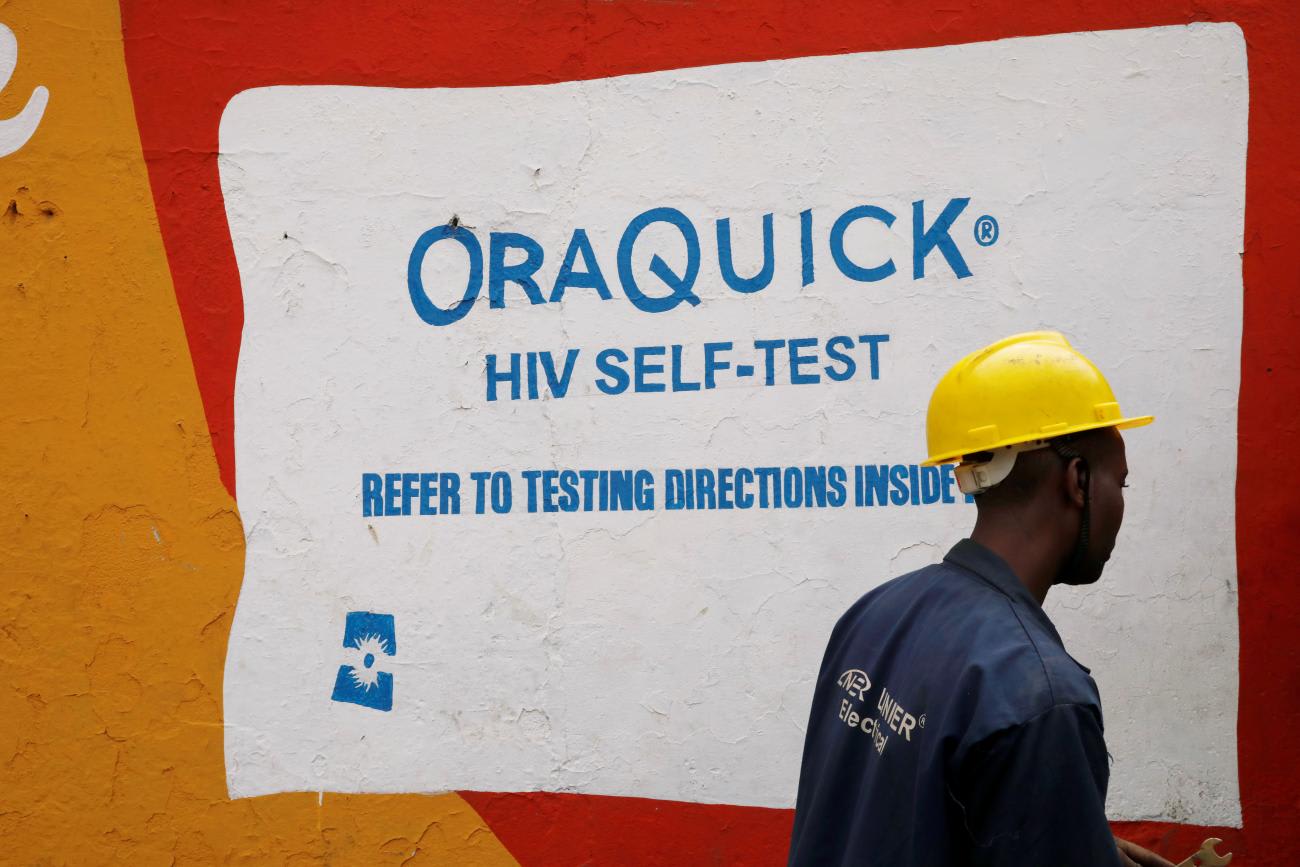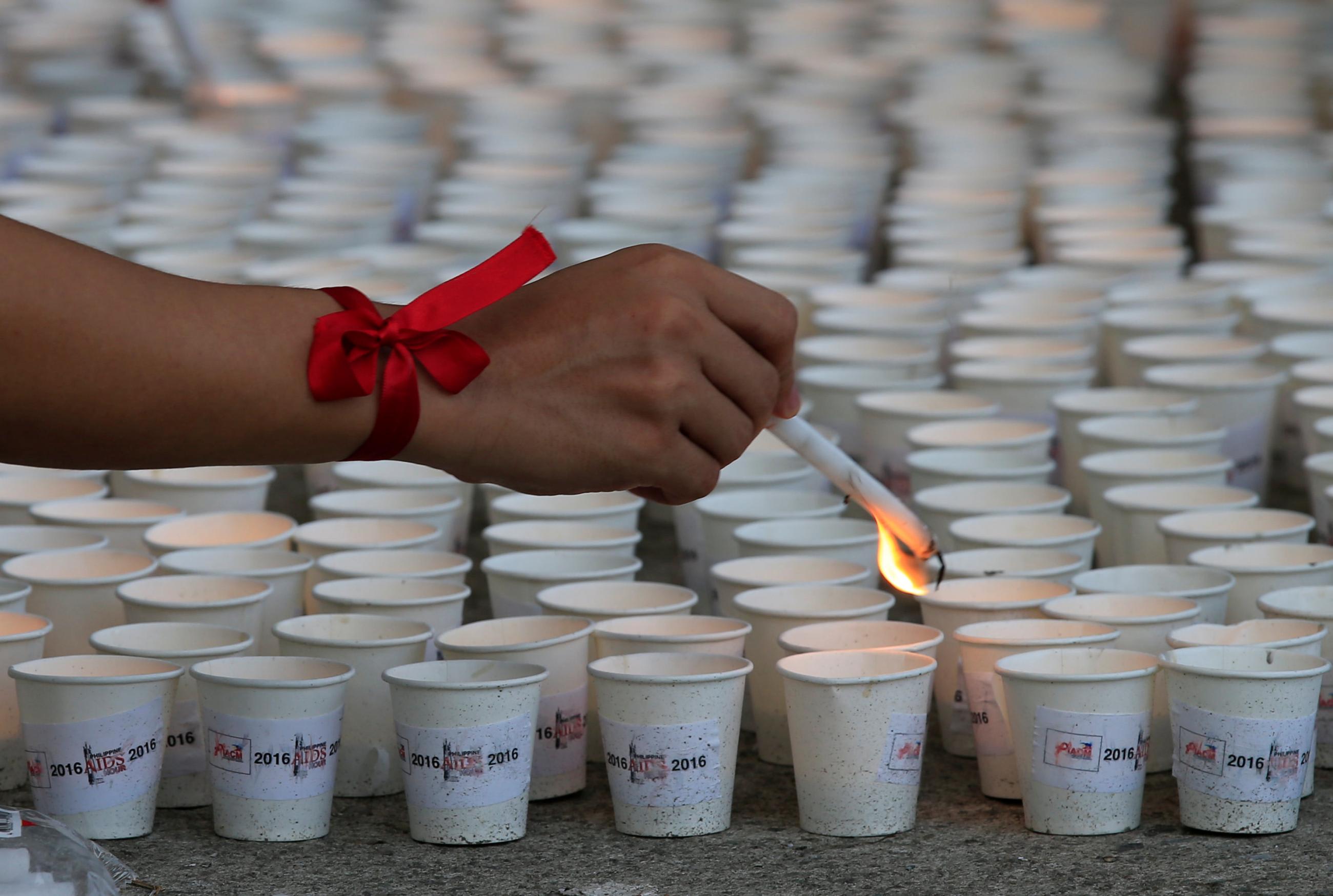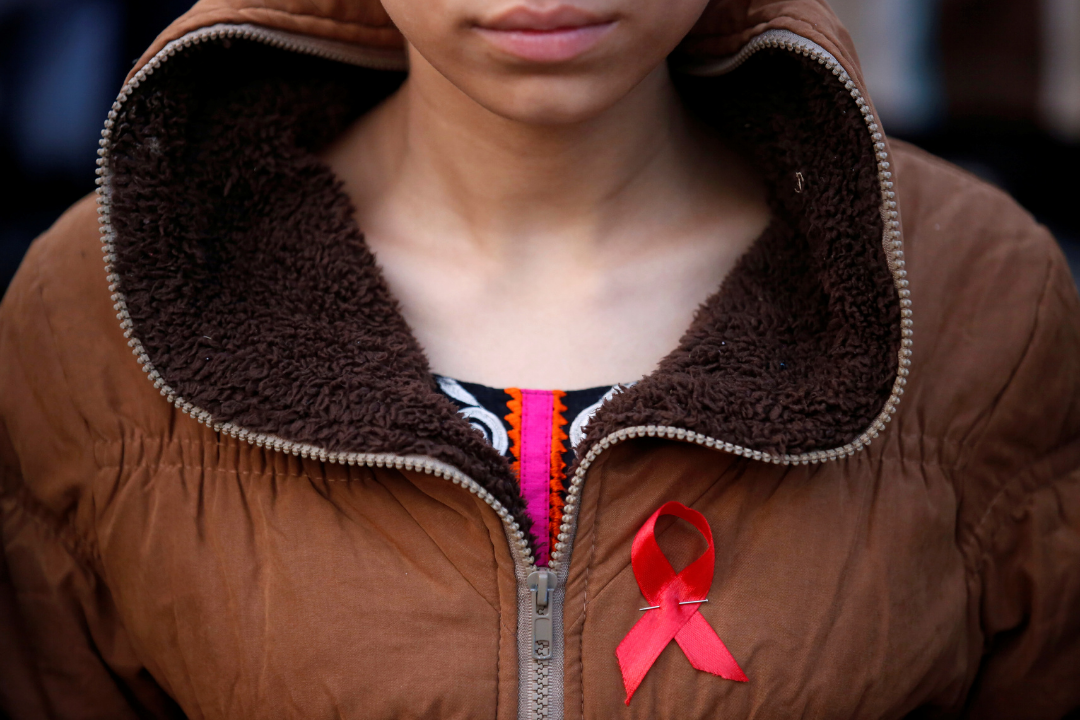The rapid and devastating movement of COVID around the world has eclipsed other health priorities over the last 18 months. The emergence of SARS-CoV-2 has overcome fragile health systems, led to the deaths of over 3.7 million people and reversed decades of progress on expanding social protection, education, child protection, and gender equality. In the shadow of this new pandemic, we have also seen some of the hard-won gains against HIV, TB, and malaria begin to unravel—especially in countries where COVID vaccination is scarce. The reality is, we cannot end AIDS or achieve other global health and development goals unless we beat COVID globally. However, it is also true that we cannot beat COVID without learning lessons from the global HIV response. As a third wave of COVID mounts in Africa, and the toll of the pandemic worsens in India and South America, we need action that is as strategic as it is bold.
"We should apply the lessons learned during the early days of the fight against HIV as we continue to grapple with COVID"
As global health leaders, we do not have the luxury of choosing between critical public health responses. Instead, we must acknowledge that to succeed in curbing either virus, the HIV and coronavirus pandemics must be fought simultaneously. And we should apply the lessons learned during the early days of the fight against HIV as we continue to grapple with COVID. The UN High-Level Meeting on HIV/AIDS being held this week provides an opportunity to reflect on how best to drive this mutual progress and make up ground that has been lost against HIV. Audacious plans must be made to address the acute devastation of COVID—especially regarding the expansion of vaccination beyond well-resourced communities—but we must also find the common ground, and the common cause, with HIV and other public health responses. It's increasingly clear that efforts to strengthen these points of intersection will yield dividends.

Striving for Equity
First, we must strive for equity. When I practiced in Africa as a young physician, my fellow healthcare workers and I bore unbearable witness to the heart-wrenching tragedy of patients dying because of the lack of access to simple pills. It took five to ten years before many of the hardest-hit countries gained access to these lifesaving medications, and nearly twenty years for us to reach the over 25 million people now on treatment—the majority of whom reside in sub-Saharan Africa. This historic achievement grew in large part from our collective outrage when faced with the ugliness of inequity.
Just as this prolonged wait for equitable access to HIV medications was excruciating for patients and clinicians, five to ten years is an unthinkable timeframe when it comes to egalitarian distribution of a COVID vaccine. The virus moves too fast, and when it is lethal, it kills within weeks rather than years. The most urgent inequity before health professionals today is the fact that less than 0.2 percent of the world's vaccines have been administered in low-income countries. The COVAX facility led by GAVI, WHO, and CEPI is a strong step towards correcting this inequity, but there is a concerning disconnect between COVAX funding and the timely availability of doses. Unexpected shortages have occurred in part due to India's suspension of COVID vaccine exports in March during a surging domestic epidemic. Sharing vaccine supplies is an important and timely part of the answer, and the Biden administration's accelerating contributions represent much needed partnership and solidarity. Ultimately, the most vulnerable regions of the world will also benefit from local production of essential public health tools such as vaccines to end COVID-19 and to overcome the nationalism that will exacerbate inequities in future epidemics.
"Care for us and accept us, we are all human beings"
HIV and "Centering"
The HIV response has led the way among health and development programs in centering marginalized communities. Centering means not just changing who is engaged in decision-making, but also changing how the work of the response is done. As the High-Level Meeting will showcase, the courageous power of civil society and those most affected by HIV has been critical in helping to navigate some of the HIV response's most challenging moments. From combating human rights abuses against LGBTQ+ populations to AIDS denialism, and stigmatizing misinformation, so many of the HIV response's successes could not have happened without affected communities leading the way. One only needs to remember 11-year-old Nkosi Johnson, who spoke so forcefully at the International AIDS Conference in Durban, South Africa, in 2000. His voice paved the way for antidiscrimination laws and inspired a generation of leaders to advocate against stigma with his beautiful statement: "Care for us and accept us, we are all human beings. We are normal. We have hands. We have feet. We can walk, we can talk, we have needs just like everyone else. Don't be afraid of us—we are all the same."
The voices of people and communities most affected by COVID-19 similarly need to be heard by policymakers as the world is challenged to expand access to life-saving vaccines and treatments.
Strategic Integration
COVID provides a clarion call for strategic people-centered integration of global health and development responses. As we saw with the societal shocks caused by social distancing and COVID-related mobility restrictions, this interconnectedness means that even long-standing programs are vulnerable to disruption. Although HIV programs adapted quickly to overcome these challenges by providing longer periods between medication refills and activating community and telemedicine solutions, they have nevertheless seen worrying decreases in services that presage a spike in new infections and deaths.
COVID-19 has also spurred a new epidemic of orphanhood due to the virus' propensity for spread within families. Sadly, this dynamic has also been a prominent feature of the HIV pandemic, which has killed more than 34 million people and led to millions of orphaned children. Children orphaned due to COVID are leaving schooling—already disrupted by COVID—and entering labor markets where girls and young women, in particular, face elevated risk for sexual violence, HIV, and other diseases of vulnerability. The HIV response, particularly in African countries, has much to share when it comes to effective approaches that support vulnerable groups—including support for early childhood development. and comprehensive education. They can be deployed to work closely with national social protection platforms to reduce risk environments and enhance the health and wellbeing of children.

Capitalizing on Existing Strengths
On the positive side, the interconnectedness of health programs has already bolstered the COVID response and will continue to be a source of strength. Laboratory capacity that was built largely through investments in HIV programs has provided access to COVID testing at much greater scale than would have otherwise been the case. With the hindsight of the past year, one no longer needs to be an expert in health systems to intuitively understand that investing in core national healthcare functions will also strengthen future public health responses. Nowhere is this more apparent than with disease surveillance and digital health systems, which can quickly be redirected to fight emerging public health threats to understand health at the community level.
Similarly, there has never been a greater opportunity to invest in highly functioning, nationally harmonized community health workforces. The heart of tomorrow's pandemic preparedness is in supporting the local disease fighters of today. Expanding public health capacity is not about building entirely new systems, but rather building from strengths—whether they exist in malaria surveillance networks or in HIV.
COVID is demonstrating the perils of our historical approach to global health and health security investing, which is driven by alternating cycles of panic and neglect. True progress can be achieved—against COVID, against HIV, and toward pandemic preparedness, and 2030 global health goals—by building bridges across responses and by strengthening systems at the local level that are able to respond to all health challenges.
In New York this week, we will hear the voices of people whose lives have been most affected by HIV. Listen carefully: they have led the way for the past forty years and will once again remind us of the urgency of our collective efforts to improve health.












